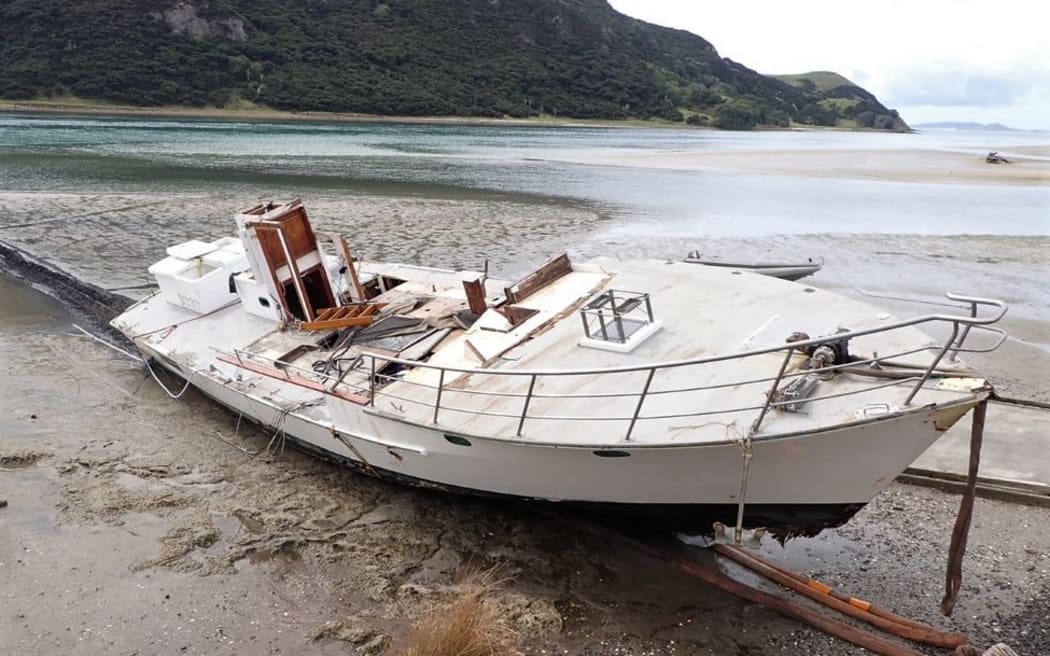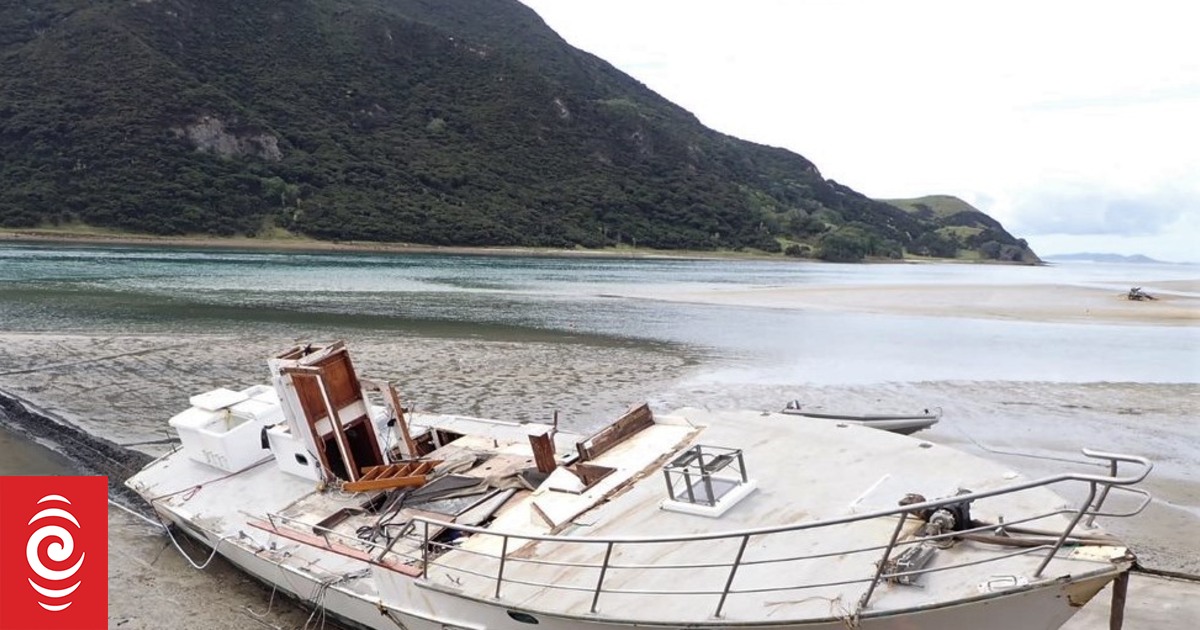
The wreck of the Enchanter charter fishing boat, which capsized after being hit by a large wave near North Cape in March 2022, resulting in the loss of five lives.
Photo: Supplied / Transport Accident Investigation Commission
A Far North iwi leader says a report into the Enchanter tragedy is a wake-up call for the region.
The report, by the Transport Accident Investigation Commission, found shortcomings in the country’s search and rescue systems – such as a lack of helicopter fuel storage in remote areas – led to significant delays in the rescue operation.
The Doubtless Bay-based Enchanter was returning from a fishing charter to the Three Kings Islands, about 50km north of Cape Reinga, when it was hit by a large wave near North Cape in March 2022.
The vessel capsized – tearing off the cabin and flybridge – and throwing all eight passengers and two crew into the water.
Five were winched to safety by the Northland Rescue Helicopter in extremely challenging conditions, but the bodies of the remaining five were not found until two days later.
The TAIC report found because the capsize was so sudden, no one was wearing, or had access to, lifejackets.
Te Aupōuri commercial general manager Penetaui Kleskovic wants the iwi to work with Search and Rescue to build capacity for future maritime emergencies.
“It is a valuable lesson for us here in the north,” he said.
“As an iwi, Te Aupōuri, the mana whenua of the peninsula area, we need to boost our resilience in the Far North.”
Kleskovic said he was also keen to work with the rescue helicopter trust on a fuel depot on the Aupōuri Peninsula.
Better fuel storage for remote areas is one of the nine urgent recommendations to the Ministry of Transport and Maritime New Zealand made in the 104-page TAIC report.
The commission has also called for better application of existing maritime rules, new rules about access to lifejackets, tracking devices for commercial boats, more search and rescue training, and dedicated search and rescue aircraft for remote operations.
Following the report’s release, TAIC chief commissioner Jane Mears told reporters it was “very frustrating” that the issue of access to lifejackets continued to be flagged in its investigations into maritime incidents.
“We have made other recommendations about the need for lifejackets to be mandated in other circumstances, she said.
“We do think lifejackets should be mandatory.”
Water Safety NZ chief executive Daniel Gerrard said it was crucial life-jackets were accessible on vessels if they were not already being worn.
Gerrard said it was always important to be vigilant and aware of conditions when going out on the water.




